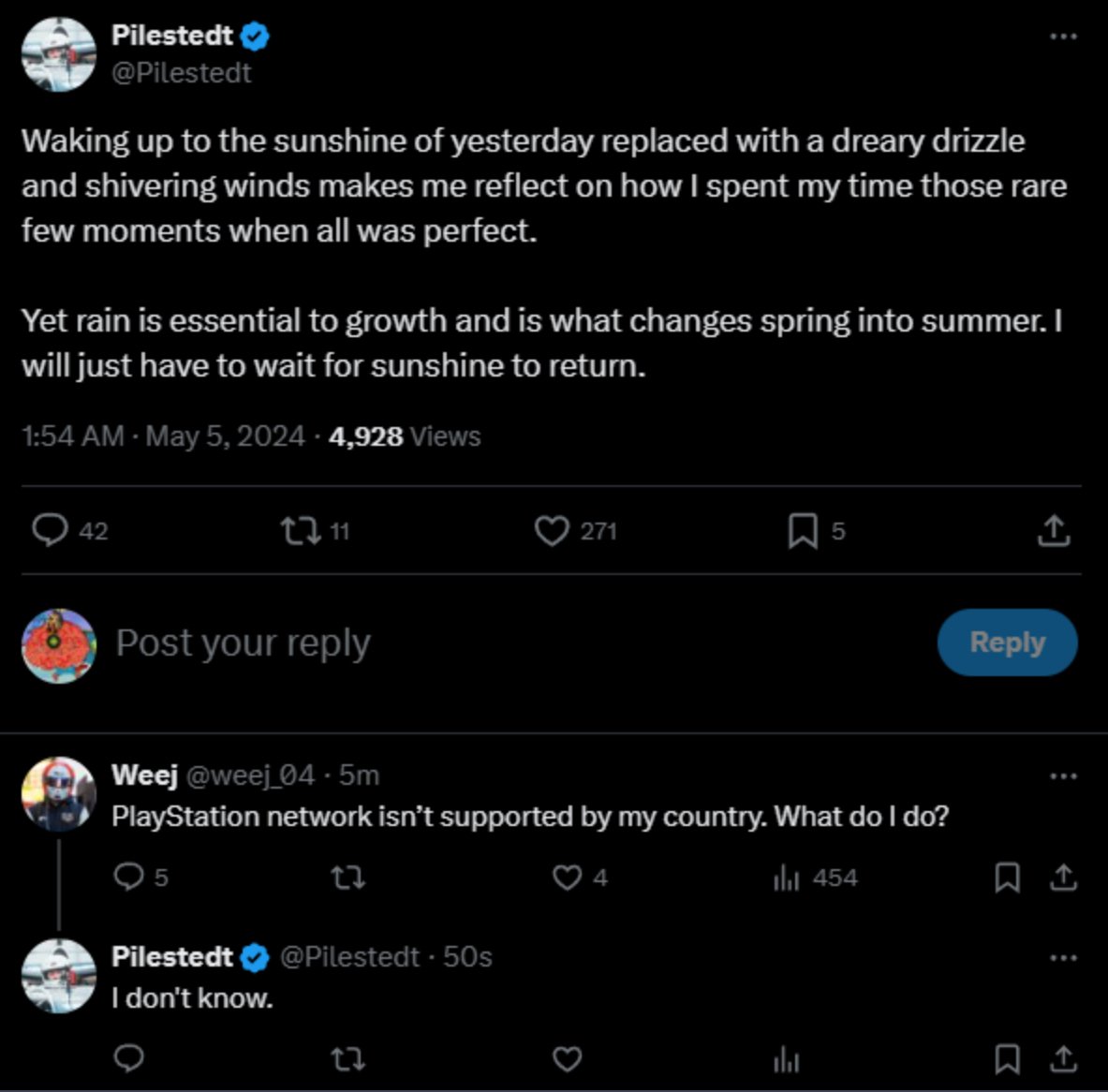this post was submitted on 05 May 2024
0 points (NaN% liked)
Games
32384 readers
991 users here now

Welcome to the largest gaming community on Lemmy! Discussion for all kinds of games. Video games, tabletop games, card games etc.
Weekly Threads:
Rules:
-
Submissions have to be related to games
-
No bigotry or harassment, be civil
-
No excessive self-promotion
-
Stay on-topic; no memes, funny videos, giveaways, reposts, or low-effort posts
-
Mark Spoilers and NSFW
-
No linking to piracy
More information about the community rules can be found here.
founded 1 year ago
MODERATORS
you are viewing a single comment's thread
view the rest of the comments
view the rest of the comments

If you don't go public with your company, some other company will go public, and buy your company or your customers from under you with the money they got from Wall Street. There are some companies that can try and resist, but the field tilts against them.
When you own something and someone comes to offer you money to buy it, you have this thing called “No” you can say, and then they don't buy it. It's a pretty neat hack. I learned it from Gaben.
Epic is trying to IPO and has all kinds of investors. It tried to undermine Valve by buying out its partners by just spraying money at them for exclusives - you know, "disrupt" the industry. Steam prevails because they are real good at what they do, and they had a head start, but it takes a Gaben to not sell out, a good team and a lot of luck to manage that. Steam is playing against a tilted field is what I'm saying, and is one of the few players who successfully are managing it. They are the exception.
Yes, notice how the person who owns the thing gets to decide to sell or not to sell it. Wild concept, I know.
The point is that you can say no to selling it, but for that to work you need to:
The point is that if Steam wasn't so much over the competition, Epic could have taken market share over with the exclusive deal shenanigans, or publishers could have started up their own marketplaces. The biggest reason for that is that Steam was early to the party and could get to a good product before others tried to enter the market.
If Steam didn't have that, people would have switched over to Epic and publisher stores, and we'd be bitching over Steam not having any good games on it because of backroom deals.
i think you are right in your assessment but I would argue that consistency also is a crucial factor.
It may be harder because of the things you say but in the end the people who invest money (into everything but the games themselves) are just in to make money.
They will try to squeeze as much money out of the customers without losing them. Or at least without losing Profit. Losing customers and still making more money is a valid strategy it seems.
People will notice that. Some earlier then others but it will get noticed and then they leave. To the next thing.
You are right with the headstart etc. so as a Dev you should accept your limitations and instead focus on the things that you can control (to an extent) and that is planing the budget in a way that you can be consistent.
And when people are looking for the next thing, you will be there better then before. Then you got customers and an image that seperates you from the rest.
And people will remember.